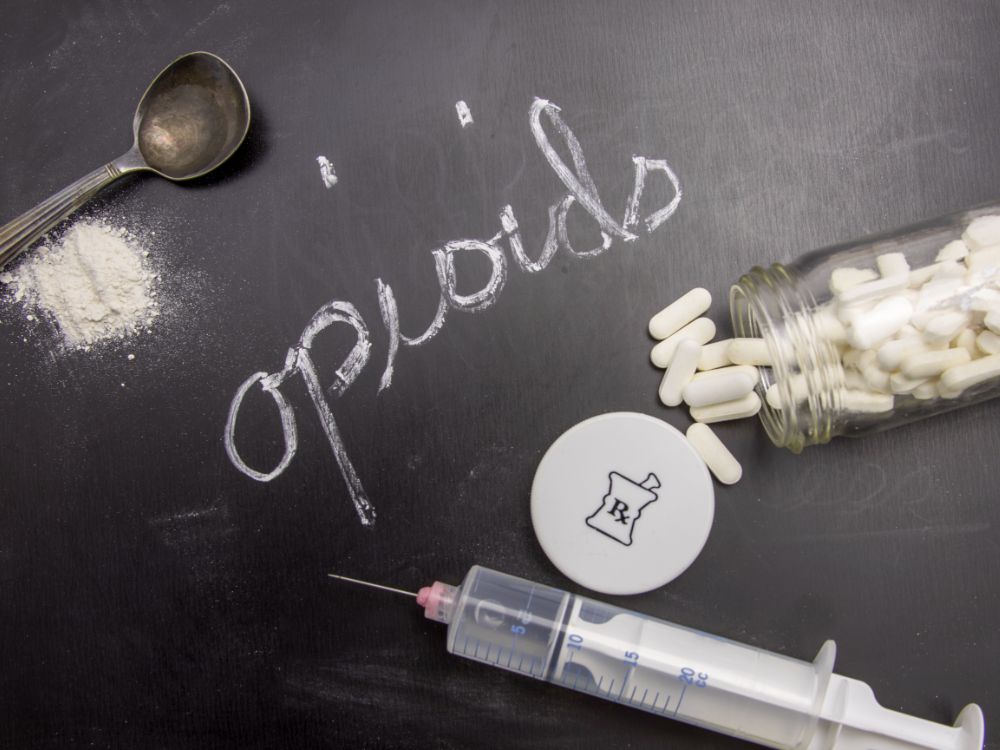Understanding the Signs and Dangers of Opioid Addiction

Understanding the Signs and Dangers of Opioid Addiction
One of the very first opioids to come to the surface was morphine in 1808, an Opioid analgesic extracted from opium by Friedrich Serturner from Germany. It was later used as a pain reliever to treat wounded soldiers during wars. Understanding the signs and dangers of Opioid addiction is very important since it can help you save a life.
History of Opioids
The use of opioids first became prevalent in the United States in the 1860s during the American Civil War era when war-wounded soldiers started to use opioids for chronic pain. Some even believe that the Opioid epidemic started on the battlefields of the Civil War in America, where they were used as pain relievers.
What are Opioids?
Opioids are drugs naturally found in the opium poppy plant. Some come directly from the plant, while others are extracted in labs by scientists with the same chemical structure. Opioids are known to have a relaxing effect on the body and are also known for their pain relief properties. Opioids are often used for moderate to severe pain in patients and can mask pain signals. However, since there is a high potential for abuse, they are often used by addicts and people with Opioid use disorder for recreational purposes. The signs and dangers of Opioid misuse mustn’t be overlooked, as they can have dangerous and fatal outcomes.
Opioid Misuse and Addiction
Opioids belong to schedule 2 drugs, making them a class of drugs with a high potential for abuse and can lead to adverse outcomes. Prescription opioids are generally a safe exit from pain when taken over a short course of time, according to a doctor’s prescription. However, since there is a high probability of addiction and building tolerance, people often misuse them. People usually abuse and misuse opioids in the following ways:
- Taking a higher opioid dose prescribed
- Taking medicine that is not prescribed to them
- Using the medication for recreational use to get a high
People usually take part in Opioid misuse by either swallowing Opioid medication or using a pill crusher to make a powder that is then dissolved into water and injected into the veins. Many people with Opioid use disorder also tend to crush the pills and then snort them. However, opioids also come as an illegal drug on the streets in the form of fentanyl and heroin.
The Signs of Opioid Addiction
Many signs of Opioid abuse and addiction are spread out in an array of behavioral, physical, psychological, and cognitive signs that a person can show when they are addicted to Opioid drugs. Some of those signs may include the following:
- Poor performance at work
- Isolating oneself from friends or family members
- Lying about being chronic pain patients to receive prescriptions for opioids
- Scabs, sores, or puncture wounds that suggest IV drug use
- Pupil constriction
- Vomiting
- Impaired judgment and problem-solving
- Feeling detached from one’s surroundings
- Sudden, unprovoked outbursts
- Irritability
- slowed breathing
If you see your loved ones are addicted to opioids, it is always a good idea that you help them stop Opioid addiction. This can be done by taking them to a good rehab center where they can be helped by professionals to beat the habit of taking opioids.
Opioid Addiction Risk Factors
Environmental variables can raise a person’s likelihood of developing an Opioid use problem. People who live in areas where opioids are regularly used as well as children who grow up in homes where other Opioid users are present, are at higher risk of using opioids themselves. Opioid usage is also more common in people who are exposed to persistent stressors, including violence, high unemployment, and poverty. Even those who are taking prescription opioids occasionally run the danger of becoming addicted to them. Some of the known Risk factors are as follows:
- Having a medical condition that necessitates prescription opioids
- Family history of substance abuse or mental illness
- Personal experience with substance abuse or mental disorder
- Illness
- Traumatizing event
- Poverty
- Chronic stress, low socioeconomic status, or unemployment
- Having acquaintances, family, or coworkers that take part in drug abuse
- Stress management issues
Opioid Overdose
Because opioids affect the area of the brain that controls respiration, using them can result in death. Three signs and symptoms, when combined, can indicate an overdose:
- Pinpoint pupils
- Unconsciousness
- Slowed breathing
About 500,000 deaths worldwide are directly related to drug usage. Overdose deaths account for more than 30% of these deaths, with an Opioid connection of over 70%. Approximately 115,000 individuals died in 2017 from Opioid overdoses, according to estimates from the WHO. Opioid overdoses that do not result in death are much more frequent than overdoses that do.
Emergency Measures for Overdosing on Opioids
If the person is given basic life support and the medication naloxone is administered promptly, the death that results from an Opioid overdose can be avoided. If naloxone is provided quickly enough, it can reverse the consequences of an overdose. Almost no effect is felt by naloxone in those who have not consumed any opioids.
Numerous programs worldwide have demonstrated that distributing naloxone to those who are most likely to witness an Opioid overdose, along with instruction on how to administer it and revive someone who has overdosed, might significantly lower the number of overdose death.
What type of treatment can people get for addiction to prescription opioids?
It is important to seek the right medical assistance when battling an addiction to Opioid medications. There are many medical and counseling services in the market; we recommend Emmaus as it is one of the top medical facilities in the United States.
Drug Rehab
Prolonged use of opiates, stimulants, alcohol, and other drugs can negatively affect a person’s health. Others can experience financial hardship, legal issues, or criminal accusations due to drug use. Maintaining one’s mental, emotional, and physical well-being while abstaining from drugs is extremely difficult. However, drug addicts who receive competent treatment as behavioral therapies and medications from a drug rehab facility, can resume leading healthy lives. Luckily at Emmaus, personal counseling, outpatient rehab, and aftercare services are offered, enabling people to beat their addiction.
Substance Abuse Treatment
Addicts may abuse a variety of drugs, such as alcohol, cocaine, heroin, and prescription Opioid. Regardless of the drug of choice, continued abuse may have disastrous effects on the lives of addicts and the people they care about. The following are some effects of drug abuse:
- Broken families
- Isolation from society Incarceration
- Death Organ damage
Since it is so challenging to overcome drug and alcohol addiction on one’s own, Emmaus provides Opioid abuse treatment tailored to each patient’s requirements. Their counselors and therapists have the knowledge and compassion to assist clients in overcoming drug addictions to other substances, even though we are specialists in opiate addictions.
Addiction Treatment Programs
Relapsing disorders of drug abuse involve compulsive drug-seeking despite negative effects, including substance use disorders. Every element of a person’s life, including family, finances, physical health, mental health, and social relationships, can be impacted by consuming illegal substances and abusing prescription medications.
With top mental health services administration, Emmaus is equipped w
Opioid Addiction Treatments
Even though the majority of symptoms only persist for about a week, many people decide to keep using opioids rather than cope with withdrawal’s psychological, emotional, and physical side effects.
However, treatment for Opioid addiction helps assist patients in overcoming their substance use problem. Professionals are knowledgeable about how opioids influence the body and mind work at addiction treatment centers like Emmaus. Opioid addiction patients will get the support they need with the aid of treatment programs to identify the cause of the addiction and start their path to wellness.
EMMAUS is a full-service clinic for addiction medicine. A full-service, faith-based clinic for addiction care. Medication-assisted treatment (MAT) is a data-driven approach to treating addiction and promoting recovery. To help patients with addiction maintain recovery in an outpatient setting, we may employ a variety of medications and therapy strategies.If you or a family member is struggling with addiction, we would be delighted to assist you and your loved ones in overcoming addiction. Call us now!






